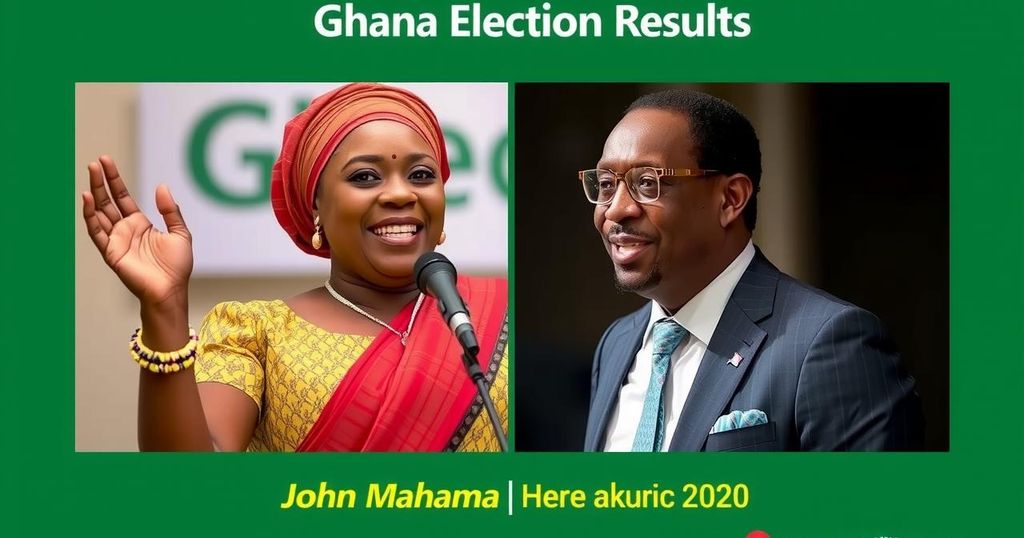The 2024 elections in Ghana resulted in a remarkable defeat for the ruling New Patriotic Party (NPP) against the opposition National Democratic Congress (NDC). Economic hardships, such as high inflation and rising unemployment, eroded public support for the NPP, despite their past accomplishments. The elections reflect wider trends in Africa where challenges in governance and economic management have precipitated similar electoral losses for ruling parties. The results signal a call for accountability and change from the electorate.
In the recent elections in Ghana, the ruling government, led by Nana Akufo-Addo and the New Patriotic Party (NPP), faced a significant defeat against the opposition National Democratic Congress (NDC), headed by John Mahama. This election marked a historic vote as Ghanaians opted for change after eight years of NPP governance. The party’s efforts to garner support were hindered by a deepening economic crisis characterized by soaring inflation and high unemployment rates, which the electorate attributed to the government’s mismanagement.
Economic hardship has been a crucial factor influencing voter sentiment, with inflation climbing to 54% in 2023 and significant debt prompting an appeal to the International Monetary Fund for a bailout. Many citizens expressed grievances regarding the government’s handling of the economy, dissatisfaction with rising taxes, and allegations of corruption among officials, which contributed to widespread disenchantment with the ruling party. Despite the government’s promotion of initiatives, such as free senior high school education and healthcare infrastructure, these efforts appeared inadequate in resolving the ongoing economic challenges faced by the populace.
Pre-election surveys conducted by Global Info Analytics predicted an unfavorable outcome for the NPP, which dismissed these findings. Research indicated that many voters were dissatisfied with NPP’s performance, particularly among the youth, where unemployment remains a pressing concern. The NPP’s loss was most pronounced in traditionally supportive regions, showcasing a shift in public opinion as they garnered fewer votes compared to previous elections.
Significantly, the opposition NDC has managed to retain and gain parliamentary seats, indicating an overall decline in NPP’s parliamentary strength. Issues such as the government’s involvement in illegal mining, the controversial national cathedral project, and continued allegations of corruption have further undermined public confidence in the ruling party. In light of these developments, Ghana’s recent elections reflect a broader trend within Africa, where ruling parties have experienced losses amidst ongoing economic and governance challenges.
The 2024 election results in Ghana signify a pivotal moment in the country’s democratic journey, particularly as it marks the end of an era for the NPP government which had been in control for the past eight years. Historically, no political party in Ghana has successfully maintained power beyond two terms without facing a transition. Following a wave of protests and the rising cost of living, public sentiment turned against the NPP, which struggled to address pressing economic issues exacerbated by global factors such as the COVID-19 pandemic and the Russia-Ukraine war. The increasing dissatisfaction played a crucial role in the electorate’s decision to support the NDC under John Mahama, who previously served as president and promised economic recovery.
In conclusion, the 2024 elections in Ghana have underscored the electorate’s demand for accountability and effective governance, as evidenced by the NPP’s significant losses in favor of the NDC. Key factors such as economic crisis, corruption, and unmet public expectations have catalyzed this political shift. The results emerge against a backdrop of rising challenges facing ruling parties in Africa, compelling them to reconsider their approach to governance in the face of citizens’ demands for transparency and tangible improvements in their quality of life.
Original Source: www.bbc.com







